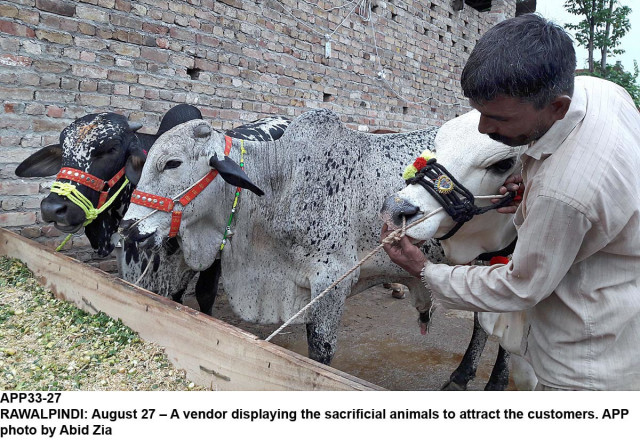Congo fever: WHO representative calls for stringent precautions
He was addressing a seminar in Bahawalpur

When patients with Congo fever are admitted, healthcare providers must ensure that they are kept in isolated ward and cared for using protective infection control measures.” PHOTO: APP
The seminar was organised by World Health Organisation (WHO) and the National Institute of Health (NIH). Quaid-i-Azam Medical College Principal Professor Ijlal Haider Rizvi presided over the seminar. WHO representatives Yahya Gulzar and NIH representative Mumtaz Khan were the chief guests.
Speakers at the seminar said Congo fever was an infectious disease which spread through cattle ticks. They said the provincial government in collaboration with various non-government organisations (NGOs) organisations had launched a drive to ensure livestock health across the province.
The speakers said hundreds of Livestock and Health Department teams had been inspecting cattle farmhouses in urban and rural areas. They said insecticides had been sprayed in cattle pens.
Speaking on the occasion, Gulzar said there was no vaccine for Congo fever.
“Citizens should be careful when purchasing sacrificial animals for Eid. They should check the animals for ticks in their hides,” he said.
He said in medical terminology the disease was known as Crimean Hemorrhagic Fever (CHF).
“Congo virus is more dangerous than cancer. If untreated, it is fatal,” he said. “A patient will develop fever and his eyes will swell,” he said.
“White blood cell count in the body drops rapidly and there may be internal bleeding,” he said.
“Congo fever can become a global epidemic so it is imperative that stringent preventive measures be adopted,” he said.
He said it was especially important for persons who worked with livestock.
“They can take practical some measures which include use of repellents particularly on exposed body parts. They must always wear protective clothing with long-sleeved shirts, long trousers, boots or a head covering and hand gloves.”
“All items that attract rodents, which may carry ticks, should be removed. This includes birdseed. Rodents burrows around the house or animal sheds should immediately be destroyed.”
“For doctors, there are standard operating procedures that should be strictly followed,” he said. “Avoid unprotected exposure to blood, body fluids, mucous membranes and non-intact skin.
When patients with Congo fever are admitted, healthcare providers must ensure that they are kept in isolated ward and cared for using protective infection control measures.”
“Only designated medical and paramedical staff and attendants should attend the patients after taking required precautions.”
“If you expect splashes of patient’s blood or body fluids, wear gloves, gowns, and use face protection,” he said.
“All health workers who exposed to a potential Congo virus source should report exposure to the hospital administration.
Blood samples should be sent to the NIH for testing,” he said.
Published in The Express Tribune, August 28th, 2016.



















COMMENTS
Comments are moderated and generally will be posted if they are on-topic and not abusive.
For more information, please see our Comments FAQ